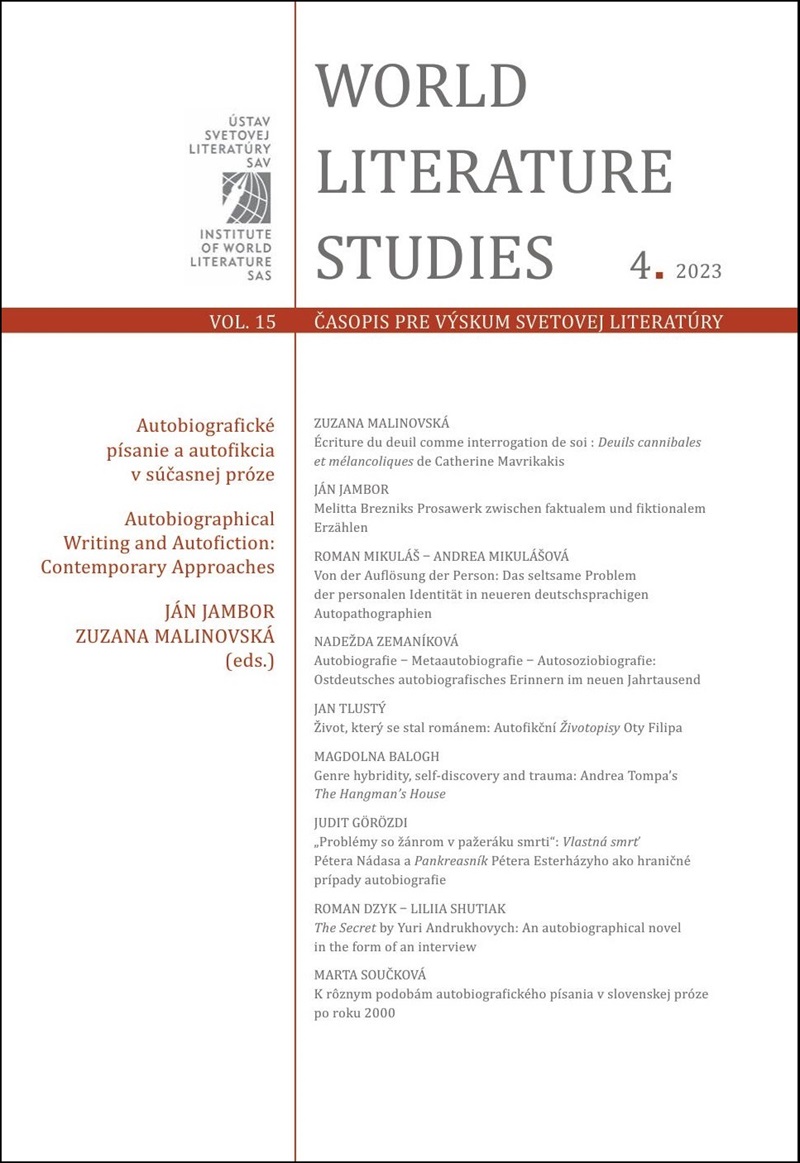Genre hybridity, self-discovery and trauma: Andrea Tompa’s The Hangman’s House
Genre hybridity, self-discovery and trauma: Andrea Tompa’s The Hangman’s House
Author(s): Magdolna BaloghSubject(s): Language and Literature Studies, Hungarian Literature
Published by: Ústav svetovej literatúry, Slovenská akadémia vied
Keywords: Trauma; Postmemory; Coming-of-age story; Autobiografical novel; Family history; Transylvania;
Summary/Abstract: Andrea Tompa’s novel A hóhér háza (2010; Eng. trans. The Hangman’s House, 2021) gives insight into a teenage girl’s coming of age during the last decades of the Ceauşescu regime. Recountingthe story of three generations of a Transylvanian intelligentsia family, from the 1940s until thefall of the dictatorship in 1989, the novel depicts all the crucial moments of 20th-century Transylvanian history. At its crux stands a journey of self-discovery, which gains meaning in the context of the family history. This duality is reflected in the hybridity of the novel’s genre. Tompa’s work is of a hybrid genre that, in addition to the dominant presence of the autobiographical novel, encompasses elements of the Bildungsroman and the family novel. Self-discovery and family history are joined together in the protagonist’s character, as the traumatic experiences of the family past become crucial parts of the protagonist’s self-knowledge and personality through postmemory.
Journal: World Literature Studies
- Issue Year: 15/2023
- Issue No: 4
- Page Range: 83-95
- Page Count: 13
- Language: English

